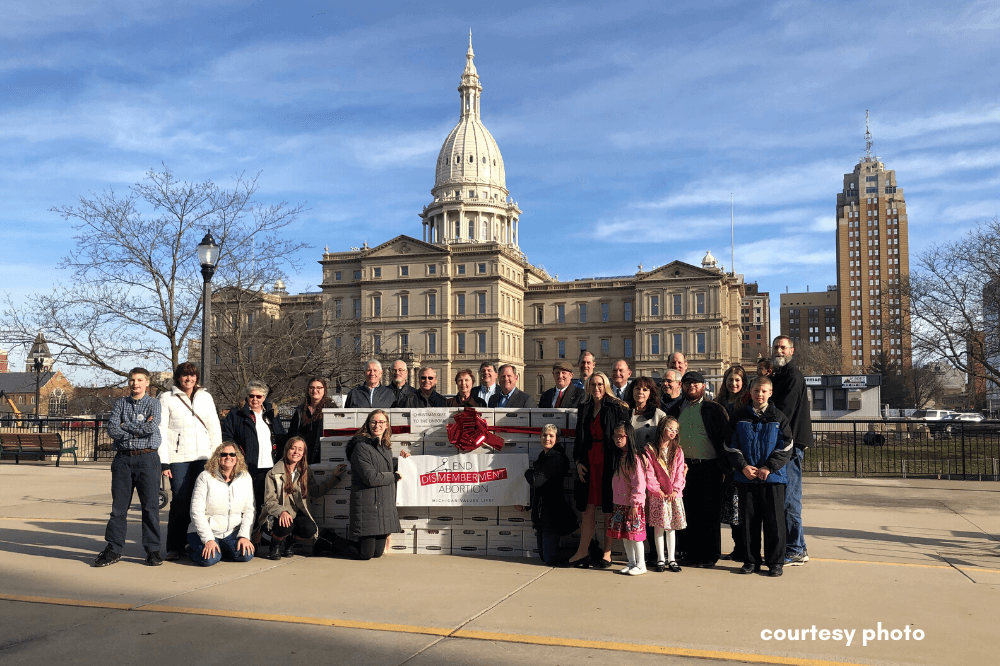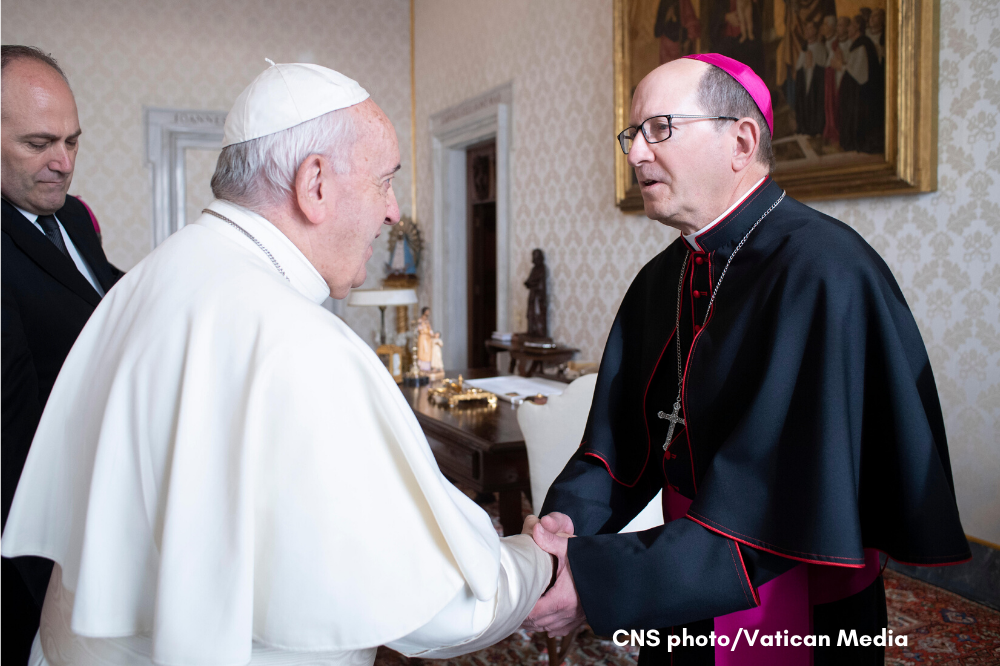
Update, July 21, 2020: Today, Right to Life of Michigan announced that it is ending its effort to place citizen-initiated legislation before the Michigan House of Representatives and State Senate that would prohibit the second trimester dismemberment abortion procedure due to an insufficient number of valid signatures.
Read a statement from the Michigan Catholic Conference.
On Dec. 23, 2019, Right to Life of Michigan’s Michigan Values Life coalition submitted 379,418 signatures believed to be valid to the Michigan Bureau of Elections to initiate legislation to ban dismemberment abortion (also known as dilation and evacuation or D&E) in Michigan.
The Catholic community in Michigan is being applauded for its role in gathering tens of thousands of those signatures.
“It cannot be overstated how grateful Michigan Catholic Conference is for the participation of the seven dioceses in the state and the hundreds of Catholic entities that worked to support this initiative,” said Rebecca Mastee, J.D., Michigan Catholic Conference policy advocate. “The Catholic community has been engaged since day one, and the level of participation only escalated the more informed citizens became of the barbaric nature of this particular abortion procedure.”
Signatures were collected as part of a “Citizen’s Initiative” over a 180-day period which began in June. The signatures submitted exceed the legal requirement of 340,047 (based on total votes for governor in the previous election). More than 400,000 signatures were received, but after thorough checking of petitions, the final total of valid signatures was whittled down to 379,418.
The Bureau of Elections will take several weeks to determine the validity of the submitted signatures, and once enough signatures are confirmed the legislation will be sent to the Michigan Legislature. The Legislature will have 40 days to consider the dismemberment ban, which, after successful majority votes, will become law without Governor Gretchen Whitmer’s signature. Initiated legislation that isn’t passed into law is placed on the general election ballot for a public vote.
What’s a citizens initiative petition and why is it important?
The Michigan Constitution allows the people to initiate legislation through a petition. In May 2019, the Michigan House and Senate passed legislation banning D&E abortions, but Governor Whitmer has said she would veto the legislation when it reaches her desk. To succeed, the petition needed approximately 340,000 signatures in 180 days. That minimum was exceededIf that minimum is reached, the policy will go into effect with a majority vote in the House and Senate and will not require the governor’s signature. If state lawmakers vote against the petition or take no action, it will go on the 2020 ballot to be approved or rejected by Michigan voters. The goal of Michigan Values Life is to collect approximately 400,000 signatures.
What about the ‘Michigan Heartbeat Coalition’ petition?
The heartbeat petition drive is separate from the petition drive to bypass Governor Whitmer’s veto of the dismemberment abortion ban. The heartbeat petition does not have the support of the Michigan Catholic Conference or the Michigan bishops. Here’s why: the petition language would prohibit any abortion after a fetal heartbeat is detected (approximately six to eight weeks of gestation). While the intent of this legislation is honorable, it would weaken and potentially repeal Michigan’s existing pro-life law. Michigan law, enacted in 1846, and later renewed in 1931, already protects all unborn children, once a heartbeat is detected and even prior to its detection. Should a heartbeat ban be implemented, it would not likely be effective until Roe v. Wade is overturned. At that point, the state’s existing ban on abortion would again become enforceable. At best, a heartbeat ban would be redundant, but at worst, a heartbeat ban could be interpreted as repealing the 1931 law and allow abortions up until a baby’s heartbeat is detected.
Unlike the ‘Michigan Heartbeat Coalition’ petition, the ‘End Dismemberment Abortion’ petition seeks legislation to amend the existing ban on partial-birth abortion. Therefore, legislation brought forth by the ‘End Dismemberment Abortion’ petition will only prohibit a specific type of abortion procedure (dismemberment or D&E).
The standard guidance during election seasons for Catholic parishes in this state is to only support materials or efforts from the arch/diocesan bishop, MCC, or the U.S. Conference of Catholic Bishops (USCCB). MCC does not support the ‘Michigan Heartbeat Coalition’ petition drive that is also currently underway, and therefore, the heartbeat initiative and its activities should not be promoted by and within parishes.
Resources
Letter from Bishop Walkowiak to parishioners (English | Español)
FAQ on ‘End Dismemberment Abortion’ petition



